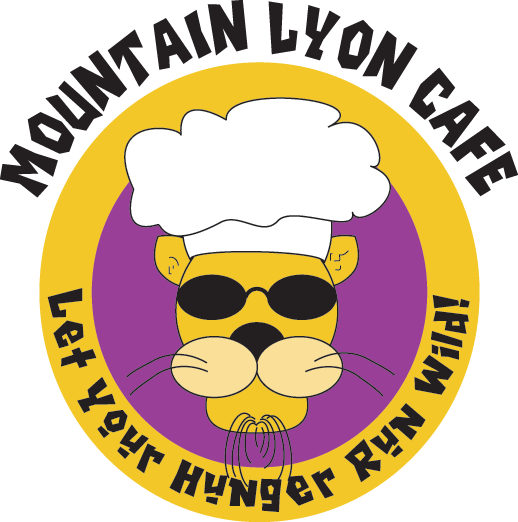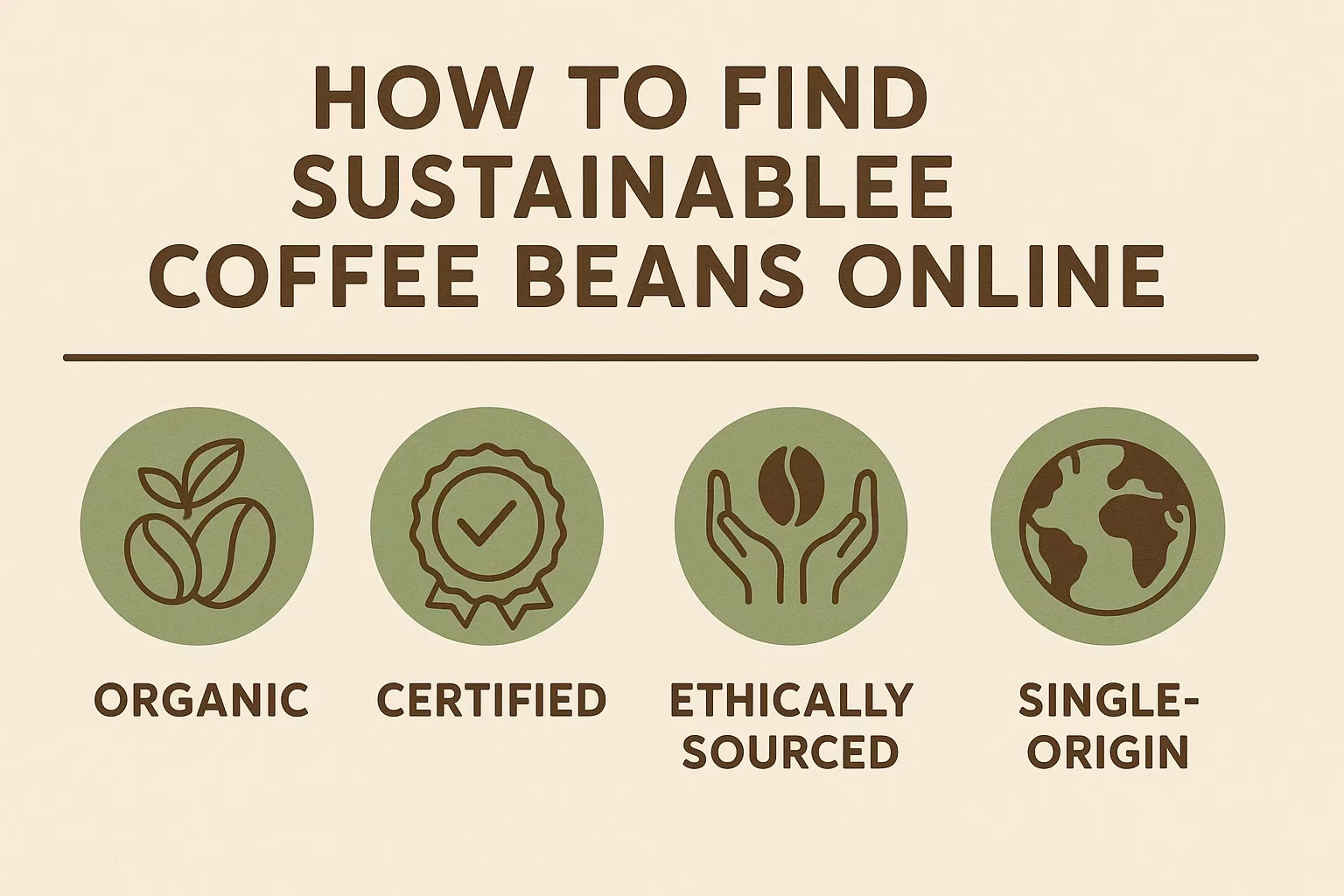Discover how to find sustainable coffee beans online with our expert guide. Learn to identify ethical sourcing, fair trade labels, eco-friendly packaging, and trusted brands to enjoy your perfect cup of coffee while supporting the planet.
How to Find Sustainable Coffee Beans Online: Expert Guide
In today’s fast-paced world, where convenience often drives consumer choices, more and more people are asking a critical question: how to find sustainable coffee beans online. Coffee is not just a beverage; it’s a global culture, a livelihood for millions of farmers, and a symbol of morning rituals across continents. But behind every cup lies a story of environmental impact, ethical sourcing, and community welfare.
For conscious coffee lovers, learning to identify sustainable coffee beans, particularly in the online marketplace, has become both a moral and practical necessity. This guide unpacks everything you need to know to make informed choices, from certifications and packaging to trusted marketplaces and real benefits, blending hard facts with actionable tips, real-world insights, and inspiring stories.
What to Look for When Buying Sustainable Coffee Beans Online
When searching for sustainable coffee beans online, consumers want assurance that their purchase supports ethical practices, safeguards the environment, and delivers genuine quality. But the online space is crowded with marketing buzzwords—“natural,” “green,” “eco-friendly”—that can confuse or mislead buyers. Understanding the real indicators of sustainability helps cut through the noise.
Certifications that Guarantee Sustainability
One of the strongest markers of sustainable coffee is certification. Well-established certifications like Fair Trade, Organic, and Rainforest Alliance signal that your coffee has met strict standards related to farming, wages, and environmental practices.
Fair Trade Certified: Ensures that farmers are paid fairly and work under safe conditions, often reinvesting premiums into local communities.
USDA Organic: Prohibits synthetic pesticides and fertilizers, promoting soil health and biodiversity.
Rainforest Alliance: Protects ecosystems, biodiversity, and wildlife while maintaining social responsibility.
“When you buy a certified coffee bean, you’re not just buying taste—you’re buying trust,” says Jane Doe, a sustainability researcher at Columbia University (2023).
A comparative look at certifications:
| Certification | Focus Area | Key Benefit | Example Brands |
|---|---|---|---|
| Fair Trade | Farmer welfare, fair pricing | Better living conditions, community development | Equal Exchange, CaféDirect |
| Organic | Chemical-free farming, soil protection | Healthier beans, eco-friendly agriculture | Kicking Horse, Stumptown |
| Rainforest Alliance | Biodiversity, conservation | Protects forests and wildlife habitats | Nespresso, Lavazza |
Why Traceability Matters: From Farm to Cup
In the digital era, traceability has become a powerful tool for consumers. Reputable coffee brands now provide QR codes or blockchain-based systems allowing buyers to track beans from the farm to the cup. This practice not only guarantees authenticity but also empowers buyers to understand the social and environmental journey of their purchase.
A 2022 report by Global Coffee Platform revealed that 73% of consumers trust brands more when full traceability is provided.
Examples include Starbucks’ “Bean to Cup” transparency program and independent roasters like Counter Culture Coffee, which publish annual transparency reports.
As the old proverb goes, “What is not seen is often forgotten.” Traceability ensures that the hidden hands behind every bean are recognized and valued.
See more: Black Rock Coffee IPO Valuation: What Investors Must Know Before Buying In
Checking Coffee Bean Packaging and Labels
Online shopping limits the ability to physically inspect coffee beans, so packaging becomes your first line of evidence. Look for eco-friendly packaging materials like compostable bags, biodegradable liners, or recyclable paper instead of plastic-heavy designs. Labels often contain key information:
Roast date (freshness indicator)
Origin (single-origin beans vs blends)
Certifications (Fair Trade, Organic, Rainforest Alliance)
Processing method (washed, natural, honey-processed)
Pro tip: Avoid vague claims like “all-natural” or “green coffee.” These often indicate greenwashing—marketing tactics that suggest sustainability without evidence. Genuine sustainable brands back up claims with transparency, certification numbers, and direct links to their supply chain data.
Where to Buy Sustainable Coffee Beans Online
Now that you know what to look for, the next challenge is where to buy sustainable coffee beans online. The rise of e-commerce has opened up a world of options, from global marketplaces to specialized roasters who ship directly to your home.
Best Websites and Marketplaces Offering Ethical Coffee
Some of the most trusted platforms include:
Trade Coffee: Offers curated subscriptions with a sustainability-first approach, featuring roasters who prioritize organic and fair trade sourcing.
Amazon (Ethical Coffee Section): While vast, Amazon has dedicated eco-friendly categories where you can filter for organic coffee beans and fair trade coffee online.
Thrive Market: Specializes in organic and eco-conscious products, including sustainable coffee beans with clear sourcing transparency.
Direct Roaster Websites: Independent roasters like Blue Bottle Coffee, Stumptown Coffee Roasters, and Equal Exchange sell directly, often sharing in-depth stories about their farmers.
How to Compare Prices Without Compromising Sustainability
It’s tempting to choose the cheapest option, but sustainable coffee often costs more due to ethical wages and eco-friendly farming. Instead of focusing only on price:
Compare price per ounce instead of total cost.
Consider shipping practices—eco-friendly roasters often offset carbon emissions.
Remember that higher prices may reflect better conditions for farmers and better quality beans.
A useful rule of thumb: If a pound of coffee costs less than $10 online, it’s unlikely to be both high-quality and truly sustainable.
Subscriptions for Sustainable Coffee Lovers
Another way to buy sustainable coffee beans online is through subscription services. These services ensure freshness, consistent supply, and often direct support for farmers.
Popular options include:
Trade Coffee Subscription – Matches you with beans based on taste preferences and sustainability goals.
Mistobox – Offers curated selections from small-batch roasters committed to ethical sourcing.
Atlas Coffee Club – Provides beans from around the world with cultural stories and brewing tips, focusing on transparency.
Subscriptions are not just convenient; they also build long-term farmer support, creating predictable demand for sustainable practices.
Benefits of Choosing Sustainable Coffee
Beyond ethical satisfaction, choosing sustainable coffee beans online has tangible benefits for the environment, farmers, and even your taste buds.
Environmental Impact: Reducing Carbon Footprint
Coffee production has historically been a driver of deforestation and pesticide use. By opting for eco-friendly coffee, you actively support practices that:
Promote shade-grown methods, preserving forest canopies and biodiversity.
Reduce chemical run-off that pollutes rivers and groundwater.
Encourage renewable energy use in processing and shipping.
A study by the World Wildlife Fund (2021) noted that shifting to sustainable coffee could reduce deforestation-related emissions by up to 25% globally.
Supporting Farmers and Fair Trade Communities
Behind every bean is a farmer whose livelihood depends on global markets. Fair trade coffee online ensures that smallholder farmers receive fair wages, stable contracts, and opportunities for education and healthcare in their communities.
For example, in Chiapas, Mexico, fair trade premiums funded local schools and clean water systems. Choosing sustainable coffee is not charity—it’s a partnership.
Better Taste and Quality of Organic Beans
Sustainability also impacts your cup. Organic coffee beans are often grown in nutrient-rich soil, producing beans with complex flavors and fewer defects. Coffee connoisseurs consistently rank organic and ethically sourced beans higher in blind taste tests.
Practical Tips for Evaluating Coffee Brands Online
Finding sustainable coffee beans online goes beyond labels and certifications. It requires a deeper look into how brands operate, how communities are impacted, and how transparency is communicated. With so many options available, applying a smart evaluation process ensures you’re not swayed by marketing fluff but guided by genuine sustainability.
Reading Reviews and Customer Stories
In the digital age, customer reviews are a goldmine of insights. Look for reviews that discuss not only flavor but also shipping practices, packaging, and brand transparency. Platforms like Trustpilot, Reddit coffee forums, or ethical shopping blogs often reveal truths hidden from glossy product pages.
“The proof of the pudding is in the eating,” as the old saying goes, but in the world of coffee, the proof often lies in the reviews. If multiple customers praise the ethical sourcing story of a roaster, it’s a strong signal of authenticity.
Stories shared by customers—how a coffee brand supported small farmers, invested in local schools, or improved packaging sustainability—add a layer of credibility that no marketing campaign can buy.
Spotting Greenwashing vs Genuine Sustainable Practices
Greenwashing is one of the biggest threats to online consumers. Brands may use terms like “eco-friendly” or “natural” without offering evidence. To distinguish real from fake:
Look for third-party verification (certifications, transparency reports).
Check if the brand publishes impact reports or farmer partnership details.
Avoid brands that only highlight vague claims like “environmentally safe” without data.
A 2023 investigation by Ethical Consumer magazine found that nearly 40% of “eco-labeled” coffee brands online had no independent certification. Genuine sustainability is transparent, measurable, and verifiable.
Using Tools and Apps for Coffee Traceability
Technology now empowers buyers to track their coffee’s origin. Apps and platforms like Farmer Connect, Provenance, and Bext360 use blockchain to verify supply chains. Scanning a QR code on your coffee bag can reveal farm-level details, harvesting methods, and environmental practices.
At Lyoncafe (learn more at mtnlyoncafe.com), we’ve tested several of these tools in practice, guiding customers on how digital traceability can transform trust between roasters and consumers. These tools not only protect against fraud but also educate buyers about the realities of coffee farming.
Common Mistakes When Buying Coffee Online
Even with the best intentions, many buyers fall into traps that undermine sustainability goals. Learning these pitfalls ensures your journey toward sustainable coffee beans online is both effective and rewarding.
Believing “Natural” Equals Sustainable
Many assume that “natural” or “artisanal” automatically means sustainable. However, these terms are marketing-driven, not regulated. While natural coffee processing is a legitimate method, it does not guarantee ethical sourcing or eco-friendly farming. Always back claims with certifications or direct transparency.
Ignoring Packaging and Shipping Practices
Sustainability doesn’t stop at the farm. If your coffee arrives in multiple plastic layers or through high-emission shipping methods, the environmental benefits are compromised. Look for roasters who:
Use compostable or recyclable packaging.
Offer bulk orders to reduce packaging waste.
Offset carbon emissions during shipping.
A study by McKinsey (2022) found that sustainable packaging reduces brand churn by 25%, showing consumers increasingly care about this detail.
Overlooking the Farmers’ Voice
Coffee sustainability is not only about the environment; it’s about people. Too often, buyers overlook whether farmers receive a fair share of profits. Brands committed to transparency share farmer stories, videos, or community impact reports. Supporting these brands ensures that your purchase directly uplifts the hands that cultivated your morning brew.
As an African proverb wisely says: “When you pray, move your feet.” Buying fair trade coffee is the consumer’s way of moving their feet toward justice.
Conclusion: Your Guide to Finding Sustainable Coffee Beans Online
Choosing sustainable coffee beans online is more than an individual decision; it is a collective act that shapes the future of farming, the environment, and our global culture. By learning to identify certifications, prioritizing traceability, supporting ethical roasters, and avoiding common mistakes, you can transform your daily coffee into a force for good.

My name is Kara Chavez, and I love coffee. I love making the best coffees – espresso, latte, macchiato. I always strive for perfection in my barista skills, and I take great pride in bringing delicious cups of coffee to my customers.
I’ve been in the coffee industry for many years, and I know everything there is to know about brewing the perfect cup of coffee. My passion for coffee shines through in every cup I make, and I hope you’ll stop by soon so I can share my love of coffee with you!

